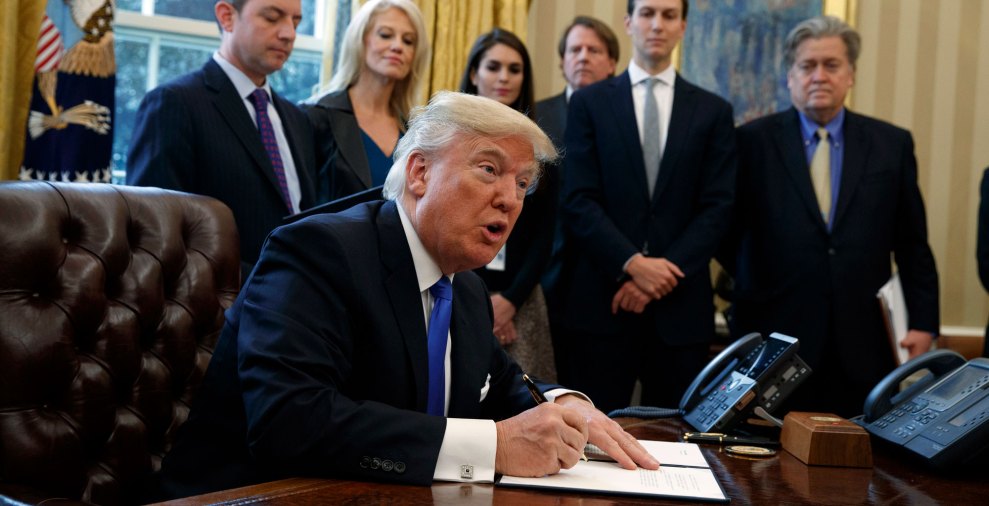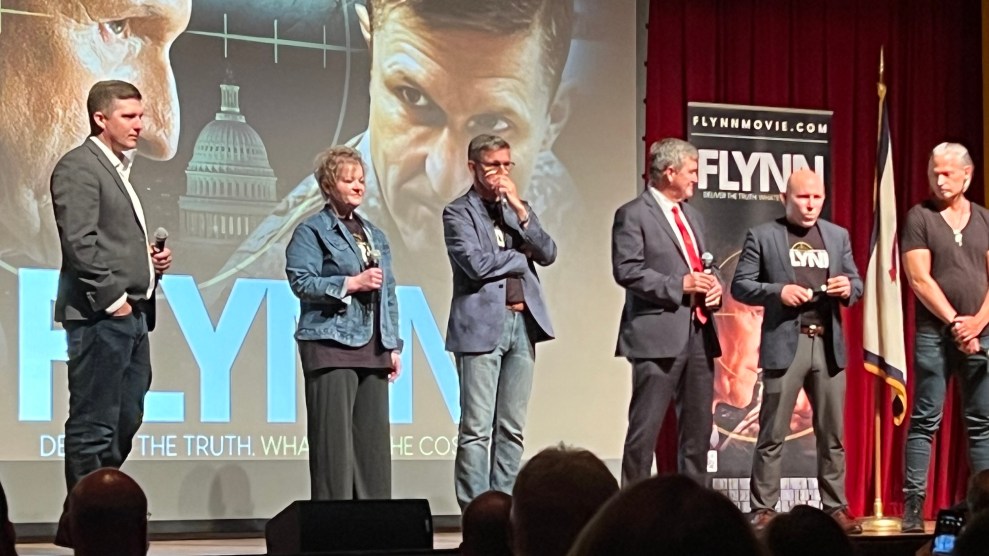For all the national outrage at the school house massacres in Littleton, Colo. and elsewhere, the sentiment could not keep gun-control legislation from dying on the House floor. As with so many other issues, majority support does not necessarily lead to action in Congress. How can there be such a disconnect between popular opinion and public policy?
Some reformers say the answer is money. Their enemy is the National Rifle Association and its campaign cash. Since the Littleton carnage, we have seen a rash of statistics showing how the NRA and its allies outspend gun-control groups by a ratio of almost 27-to-one. “Money is a mighty fortress,” intoned one recent news release.
These numbers appear persuasive, and undoubtedly, the NRA spends its money for a reason. But money is of secondary importance for explaining its influence. The simple fact is that the NRA’s money has power because there is a critical mass of voters out there who are attracted to its message.
What’s more, these voters are disproportionately “swing voters” — that 15 percent of voters up for grabs in a close election. They often are classic Reagan Democrats, including some union members, who fear infringement on gun ownership. They form a potent single-issue voting bloc.
The combination of their passion and their willingness to “swing” between Democrats and Republicans far outweighs their minority status. The NRA’s influence has come from its capacity to move these voters — with its message more than its money.
The NRA’s historic power can be better understood by examining the strategic choices candidates must make in a competitive race. For example, the third congressional district in southwest Washington state is a classic swing district. Its constituents vary greatly, from the liberal university town of Olympia to socially conservative rural areas. The seat has changed parties in two of the last three elections.
In 1988, Jolene Unsoeld, a liberal Democrat from Olympia, narrowly won the district and in 1990 faced the best financed challenger in the nation. Caught between the Scylla and Charybdis of her conflicting liberal and conservative constituents, Rep. Unsoeld did what all smart politicians do: she listened to her pollsters.
Consequently, during the campaign Unsoeld “came out” as a champion of the NRA, shocking many liberal supporters. The knee-jerk charge in the Seattle press and among many liberals unaware of the realities of her district was that she had sold out for the NRA’s money, which indeed she received.
In fact, Unsoeld always had voted against gun control, but quietly, so as not to alienate her liberal supporters. But her liberalism on social and environmental issues had made her vulnerable against an aggressive challenge for Reagan Democrats in her district. So when she was offered the chance to sponsor a measure against gun control, she accepted. Knowing that her liberal voters feared her conservative opponent and had nowhere else to go, her campaign could highlight her pro-NRA views for the votes it won, not the cash. She went on to a relatively easy win, only to lose her seat to a Republican in 1994.
An analysis of those 45 Democrats who voted against gun control last week reveals an overwhelming number representing swing districts, primarily from southern and western districts who reflect their constituents’ embrace of gun rights. For them, this is an issue that, if they fall on the wrong side of it, will cause them to lose their seat. Indeed, one of the Democrats who voted against gun control was Rep. Brian Baird — he had won back Jolene Unsoeld’s seat from the Republicans in 1998.
The power of the NRA, then, has come from its power to influence the relatively few close elections that often can determine control of our legislatures. With up to 90 percent of House races not competitive in any one election cycle, most attention focuses on the relatively few close races. In those swing districts, a change in 5 percent of the vote can make all the difference — both for winning those races and control of Congress.
In the winner-take-all voting system that creates our adversarial politics, guns have been one of the most effective wedge issues for Republicans to cut into the Democrats’ vote. Now, however, guns may backfire. Polls show that another “swing voter” slice of the electorate, the proverbial suburban “soccer moms,” may change their vote based on gun control. So the two parties are trying to position themselves between the swings of the polls, and sound national policy gets caught in the cross-fire.
Awash in statistics and admirable zeal, some campaign finance reformers miss such subtleties about the realities of campaigning in a winner-take-all system. They assume that you can establish the “right” vote for a representative — even one in a swing district, like Jolene Unsoeld — and then explain any deviation from that vote as proof of the influence of money. But that’s overly simplistic.
The fact is, it’s winner-take-all dynamics that allow well-organized minorities like the NRA to hold hostage important policy demands. If we don’t understand the complexity of how our system works, then we will miss the mark on how to improve it.
Rob Richie is executive director of The Center for Voting and Democracy and Steven Hill is the Center’s west coast director. They are co-authors of “Reflecting All of Us” (Beacon Press 1999). For more information, see www.fairvote.org or write to: PO Box 60037, Washington, DC 20039.















